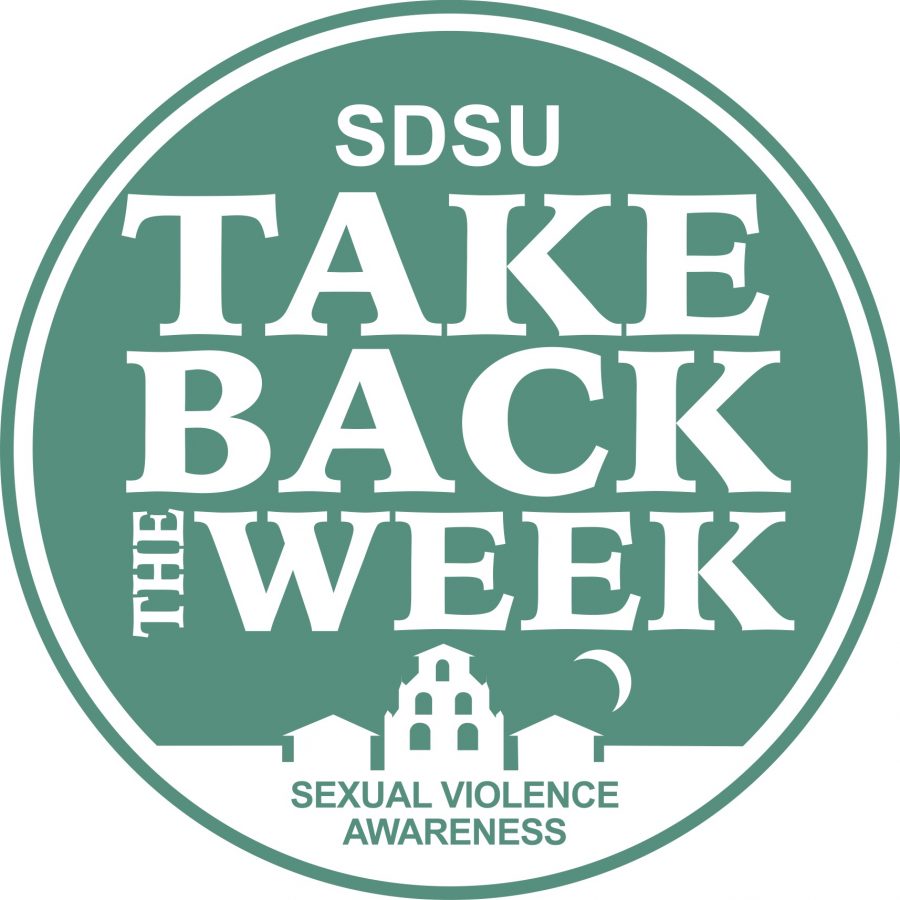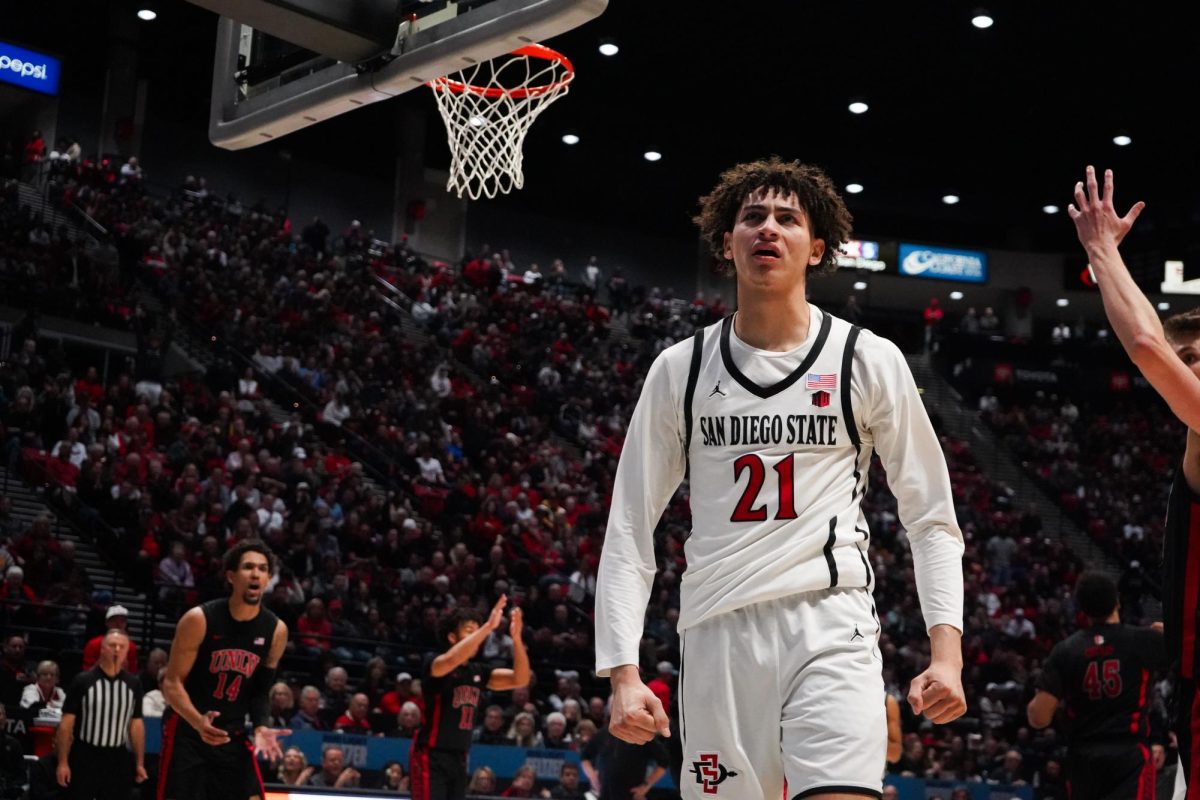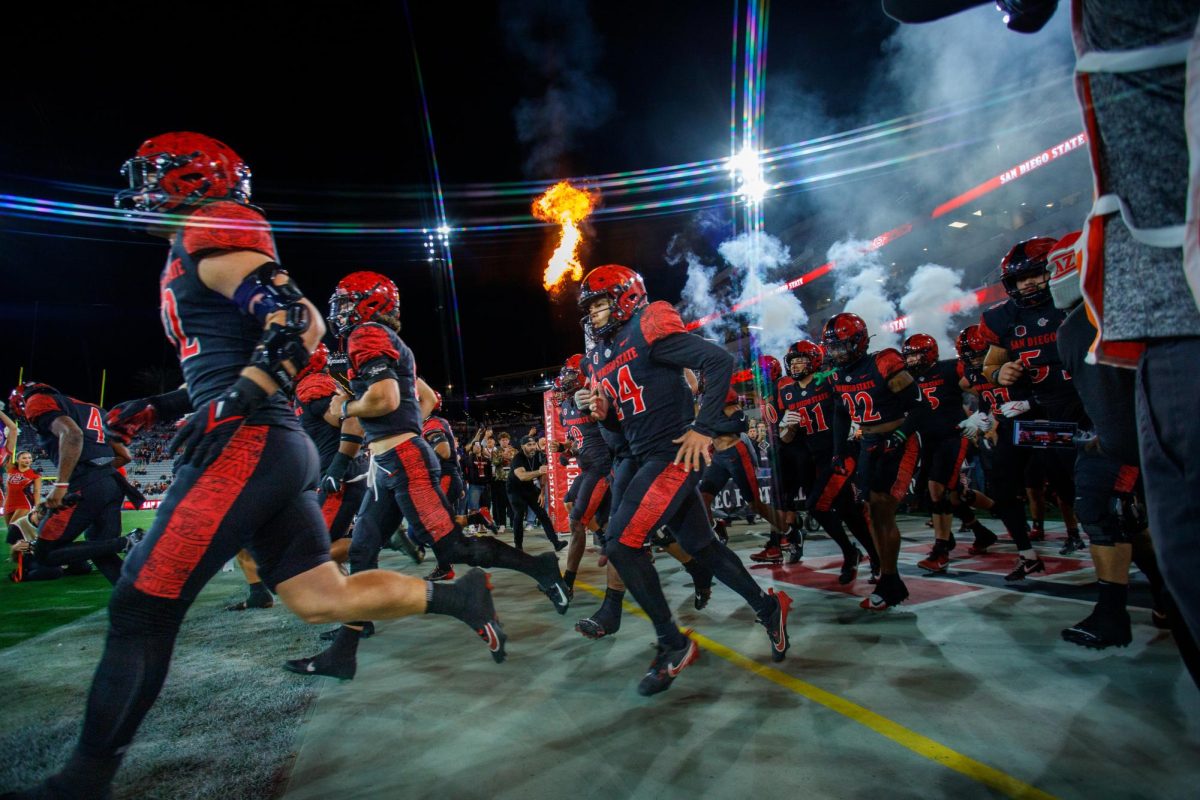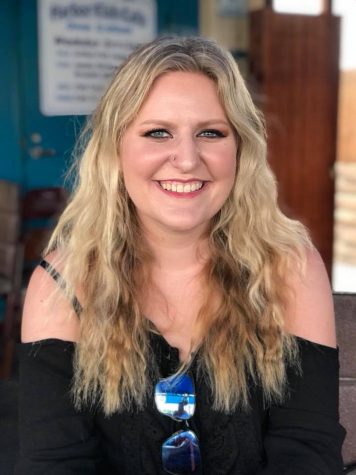Take Back the Week is returning to San Diego State to continue raising sexual violence awareness on April 10 – 15.
Women’s Resource Center coordinator and women’s studies faculty member Jessica Nare said Take Back the Week is a collaborative effort on behalf of the Sexual Violence Taskforce, the Women’s Resource Center and student organizations and is SDSU’s extension of Take Back the Night, a nationwide college campus event.
“The idea behind Take Back the Night is to reclaim space on college campuses for survivors of sexual violence, to be loud and outspoken about the fact that sexual violence does occur and give a place for survivors to tell their stories,” she said. “It’s an activist event to move towards making campuses and universities safer for folks who have experienced sexual violence and to prevent it from happening.”
Journalism sophomore Alexis Henry feels Take Back the Week helps people feel more comfortable discussing their experiences with sexual violence, a topic too often swept under the rug in everyday life.
“Sexual assault is a very real thing that happens but because it’s so taboo it’s not talked about enough,” Henry said. “Take Back the Week gives those who were victims of sexual assault the reassurance that they aren’t alone, the feelings they have are valid and we as a community are here to help them.”
April is Sexual Assault Awareness Month, so apart from Take Back the Night, campuses across the country are hosting programs and events centered around such issues.
Take Back the Week presents fresh, new events each year, and this year’s coordinators have booked an especially diverse lineup of workshops, speakers and activities.
Nare said one of the big ticket events is “Grab ‘Em by the What?,” a discussion on sex, consent and American values hosted by sexologist Dr. Jenn on Monday, April 10.
“(Dr. Jenn) does a lot of work with couples and individuals around sexuality,” Nare said. “She’s also experienced a consent violation in the pretty recent past, so she’s going to talk about that and how we can improve our communication with our partners to have more positive sexual experiences.”
Another Take Back the Week event anticipating a large draw is the screening of Aishah Simmons’s “No! The Rape Documentary” followed by a discussion led by Simmons herself held on Wednesday, April 12.
Students should also be on the lookout for the smaller workshops held during the week, such as Berenice Dimas’s workshop on connecting with ancestral strength to heal from violence taking place on Tuesday, April 11.
Dimas is known in the San Diego and San Fernando Valley communities for her Hood Herbalism classes, also focusing on spirituality and healing.
Take Back the Night is slated for Thursday, April 13, but the week will round out with events such as Trauma-Informed Yoga on Friday and Brave Project Training on Saturday.
Nare said the events are based on the needs and interests of students and what they feel is relevant.
“It’s really important to get a pulse on the needs of the students on campus,” she said. “All of these events that are taking place were either initiated by students, or students said they were topics that haven’t been talked about in relationship to sexual violence so we really need to talk about them.”
Major focuses for this year’s events were race, sexual orientation and gender identity in relation to sexual violence.
“This year we really tried to focus on thinking about how students’ individual experiences and identities impact the way that they navigate trauma and violence,” Nare said. “We have a lot of workshops that are focused specifically on race or sexual orientation because I think those are things that are left out of these conversations a lot of time and we really wanted to make sure we’re paying attention to them this year.”
Examples of such events are Barriers to Reporting in the LGBT+ Community Presentation and Discussion on Tuesday, April 11 and Sexual Violence, Mass Incarceration and the Black Community Presentation with Preshus Thompson from Center for Community Solutions on Wednesday, April 12.
Henry said it is important to note how someone’s race, sexual orientation or gender identity may lead them to facing unique struggles when it comes to sexual violence.
“There’s no stereotypical face of victims or perpetrators of sexual assault,” she said. “It can happen to anyone by anyone, and limiting the conversation to just one group of people defeats the purpose of the event.”
As a result of making Take Back the Week as inclusive as possible, Nare said she hopes all genders feel encouraged to join the conversations.
“Although I think women tend to be more interested in these topics, if we’re really going to radically change the conversation and the experience of sexual violence, men really need to be at the table and be participating,” she said.
“It’s super important to recognize that men and gender non-binary folk also experience sexual violence. It’s very easy to think of it as an issue only women experience, but anyone can be a survivor of sexual violence, that’s something we hope to call attention to this week.”
Now that President Donald J. Trump’s administration has taken office, Nare said the current political climate has made programs like Take Back the Week as important as ever.
“I think if there’s one positive thing that comes from some of the really oppressive things that are happening in our society, is that I hope to encourage folks to stand in solidarity with one another, build community and take action around the issues they care about,” she said. “Sexual violence in our community, here on our campus and across campuses in the United States is such a huge issue. I think when it leaves the media’s attention for a moment, people kind of forget that it’s important, but it’s still really important.”
Nare emphasized that local activism creates the necessary platforms that lead to widespread change.
“I think that whether it’s sexual violence or another issue, we have to make the voices of folks who are marginalized heard,” she said. “We have to bring to the forefront the issues that we feel are important, especially when we feel like we’re not being heard or represented well in bigger institutions. That’s something that needs to be a topic of conversation, so if we can do it at lower levels and really find allies and accomplices here in the community and work together on a local level, I think that’s super important.”
Depending on what events they attend, students will gain a variety of knowledge and tools in regards to sexual violence, but overall Nare said she hopes people walk away from Take Back the Week knowing sexual violence is a significant issue.
“There are lots of folks on campus who care about this issue and who are working to support survivors of sexual violence, and to prevent it from happening,” she said. “If folks do experience sexual violence during their time here (at SDSU) or know somebody who does, there are lots of resources to support them. I think we do a pretty good job of talking about (sexual violence) here at SDSU compared to other universities, so I think we can
just continue to try to make progress
on this issue.”















